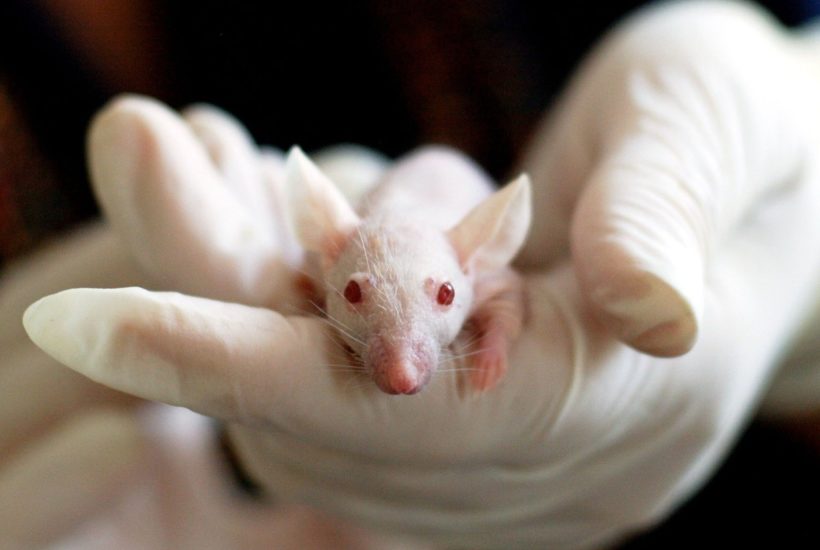Biotech
Why is the biotech company Genoway moving towards “catalog models”
The Lyon-based biotech company Genoway closed 2019 on a mixed note, but nevertheless recorded the first fruits of its strategy, which is now focused on the creation of around thirty “catalog models”. For 2020, growth prospects, particularly through the agreement to distribute these models in Asia via the partnership with Cyagen, make the company confident, despite the current health crisis.

The biotech company, founded in 1999 in the laboratories of the ENS in Lyon, develops genetically modified research models for the bio-pharmaceutical industry. In other words, it supplies laboratories and research institutes with cells, but also with genetically modified rats and mice adapted to their needs.
“This has been Genoway’s strategy until now. It has enabled us to acquire great expertise and a large client portfolio. The downside: the most advanced models are not the most profitable,” said Christian Grenier, President, and CEO of Genoway.
This is why the company has decided to diversify its offer and in 2019 launched a catalog offer of models available in a very short time frame: only two months compared to 18 months for customized offers. Genoway focuses on immuno-oncology, i.e. the alternative approach to chemistry in the fight against cancer, a priority area for the pharmaceutical industry specializing in research against the disease.
“Our models are co-developed by professionals from the pharmaceutical industry to best adapt to their needs. We aim to develop around 30 models, today we have around 20. In addition to the models we acquired when we bought Axenis in September 2018. One model, in particular, is in great demand, a mouse that is totally immunocompromised, which allows us to graft a totally human immune system onto it and then work on drugs,” continued Christian Grenier.
This diversification of Genoway’s activities has enabled the company to address a much wider market, as catalog models are less expensive than custom-made models. The young company is thus targeting the biotechnology market, but also the broader market of Contract Research Organizations (CROs), pre-clinical, and clinical research.
+ 24% increase in catalog models in 2019
A strategy initiated in 2019 and which, according to the manager, explains a mixed fiscal year 2019, with consolidated sales of $10.3 million (€9.5 million), down – 12% compared to 2018. This is despite the fact that the second half of the year was marked by an acceleration in sales of the first catalog models available in immuno-oncology (+36% compared with the first half of 2019).
“We have had to modify our sales force since catalog models are sold differently from custom-made models. We recruited seven people to develop this new business. This brings our workforce to 125 people. Our 2019 results are impacted by these recruitments, which required the mobilization of our former sales staff to train the new ones. On the other hand, we have decided to abandon certain small university customers who were not in our core target group, resulting in a sharp decline in the first half of the year,” explained Christian Grenier.
This trend is even more pronounced in terms of EBITDA, which benefited in the second half of the year from the accelerated growth of catalog models, whose business model is structurally more profitable.
“In view of the results, this strategic redeployment was the right decision to take. We have given the company back its financial resources. We launched an external refinancing and obtained $6.73 million (€6.2 million), including $1.84 million (€1.7 million) of fundraising, thanks to the issue of shares at $1.74 (€1.60) per share with regional investors. $4.88 million (€4.5 million) in bank financing, thanks to our banking partners and Bpifrance,” explained Christian Grenier.
Objective: $32.5 million (€30 million) in 2024
For 2020, growth prospects, particularly through the agreement to distribute these models in Asia via the partnership with Cyagen, make the company confident, despite the current health crisis.
“First-half results will be in line with our forecasts, as our major customers have not stopped the orders they have taken. The consequences on our activity are difficult to predict at the moment. The implementation of our projects will be delayed by a few weeks at most, particularly with China, for logistical reasons,” said Christian Grenier.
While continuing its historic business of selling custom research models, Genoway will address, by the end of 2021, a global market for preclinical studies of more than $2 billion compared to only about a hundred million dollars until then, according to its leader. $32.5 million (€30 million) in revenues and 25% EBITDA margin by 2024.
“The development of this catalogue offer will continue beyond immunotherapy when we have the thirty or so models we want, in about a year’s time. We are also going to develop a range of genetically modified animals in a new area that we have not yet defined, which could be infectiology or degenerative diseases. Our 15 years of experience leave us great possibilities. We have competitors, but not with technologies as advanced the ones we have,” he concluded.
__
(Featured image by tiburi via Pixabay)
DISCLAIMER: This article was written by a third party contributor and does not reflect the opinion of Born2Invest, its management, staff or its associates. Please review our disclaimer for more information.
This article may include forward-looking statements. These forward-looking statements generally are identified by the words “believe,” “project,” “estimate,” “become,” “plan,” “will,” and similar expressions. These forward-looking statements involve known and unknown risks as well as uncertainties, including those discussed in the following cautionary statements and elsewhere in this article and on this site. Although the Company may believe that its expectations are based on reasonable assumptions, the actual results that the Company may achieve may differ materially from any forward-looking statements, which reflect the opinions of the management of the Company only as of the date hereof. Additionally, please make sure to read these important disclosures.
First published in LA TRIBUNE, a third-party contributor translated and adapted the article from the original. In case of discrepancy, the original will prevail.
Although we made reasonable efforts to provide accurate translations, some parts may be incorrect. Born2Invest assumes no responsibility for errors, omissions or ambiguities in the translations provided on this website. Any person or entity relying on translated content does so at their own risk. Born2Invest is not responsible for losses caused by such reliance on the accuracy or reliability of translated information. If you wish to report an error or inaccuracy in the translation, we encourage you to contact us.

-

 Markets2 weeks ago
Markets2 weeks agoShockwaves of War: U.S. Strikes Iran, Markets Teeter, Global Risks Rise
-

 Crypto1 week ago
Crypto1 week agoCoinbase Surges: Bernstein Targets $510 as COIN Hits Highest Price Since IPO
-

 Markets3 days ago
Markets3 days agoCoffee Prices Decline Amid Rising Supply and Mixed Harvest Outlooks
-

 Crypto2 weeks ago
Crypto2 weeks agoBitcoin Recovers After U.S. Strikes Iran, While Altcoins Face Sharp Losses

























